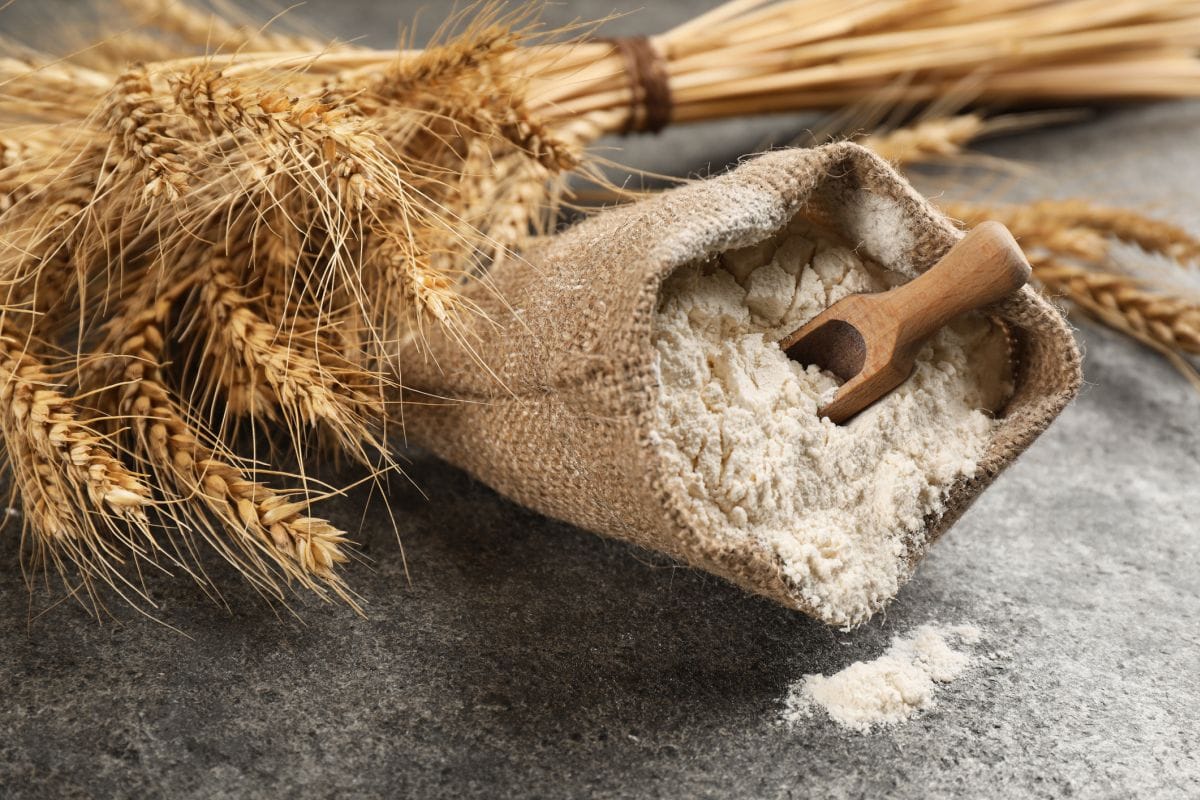You may have flour stashed away in your pantry, fridge, or freezer. It will have an expiration date or a best-by date. But does flour go bad? And if so, you may be wondering how to tell if flour is bad. The answer to some of these questions depends on how and where you store it.

Does Flour Go Bad?
Yes, flour can go bad, but it takes a while. Over time, it can become subject to spoilage and lose its freshness, flavor, and texture. Whole wheat flour and some types of non-wheat flour will spoil quicker due to their higher fat content. You should replace those more often than regular white flour.
To keep your flour fresh and free from spoilage, store it in an airtight container away from direct sunlight. Place it in a cool, dry place, such as a pantry, fridge, or freezer. This will help prevent moisture from entering the package and keep out contaminants like insects and bacteria that could spoil the product. It's important to check any flour before use to ensure that it's still good to consume.
How to Tell if Flour Is Bad
It's best to use your senses when deciding whether to keep using a bag of opened flour. The following signs may indicate that your flour is bad:
1. The flour has an unpleasant odor or smell. If the flour smells rancid, it is bad and should not be used for baking.
2. There are visible signs of mold. Mold will often appear as green, blue, or gray spots in the flour which indicates spoilage.
3. The flour has become lumpy. If you notice any lumps or clumps in the flour, this can be a sign that moisture has seeped into the product and caused it to spoil.
4. The color has changed. When flour spoils, its original white color may change to shades of yellow, gray, or even brownish-black due to oxidization.
5. There are insects or other contaminants in the flour. If you see any signs of insect activity, such as webs or larvae, it is best to dispose of the product immediately.
If your flour looks, smells, or tastes off, it's time to buy a new bag of flour and throw away the old one. If you have any doubts, it's best to discard the product because consuming spoiled flour may cause food poisoning.
How Long Does Flour Last?
The shelf life of flour depends on how it is stored.
- How long does flour last in the pantry?
White flour lasts at least 3 to 6 months in the pantry when stored in an airtight container or its original packaging.
- How long does flour last in the fridge?
White flour can last up to 1 year when stored in an airtight container in the fridge.
- How long does flour last in the freezer?
White flour lasts up to 2 years if stored in the freezer in an airtight container.
If you store your flour in the fridge or freezer, bring the flour to room temperature before using it. Your bread or dough will not rise if you use it straight from the fridge or freezer. Also avoid defrosting and refreezing the flour as this can cause it to spoil.
Is It Okay to Use Expired Flour?
The USDA does not require product dating on flour, but you will see expiration or best-by dates on most flour packaging. Manufacturers provide product dating to help you know when the flour is of the best quality. The dates are not an indicator of the product's safety or spoilage.
If stored in an airtight container and kept away from light and moisture, most types of flour will last for several months past the best-by date printed on the package. After this time has passed, you can still use it if you don't see any signs of spoilage. But you may see a decline in quality that is noticeable when baking or cooking with it. It might not rise as well as before or produce baked goods that are less flavorful.
Bottom Line
So, does flour go bad? The answer is yes. Flour lasts about 3 to 6 months in the pantry, 1 year in the fridge, and 2 years in the freezer when stored in an airtight container. To tell if your flour is still good to use, look for mold growth, an unpleasant odor or taste, lumps or clumps, and a change in color. Even if the best-by date has passed, you can still use the flour if there are no signs of spoilage—though it may not rise as well as before. As with any food product, always err on the side of caution when deciding whether to consume expired flour.


